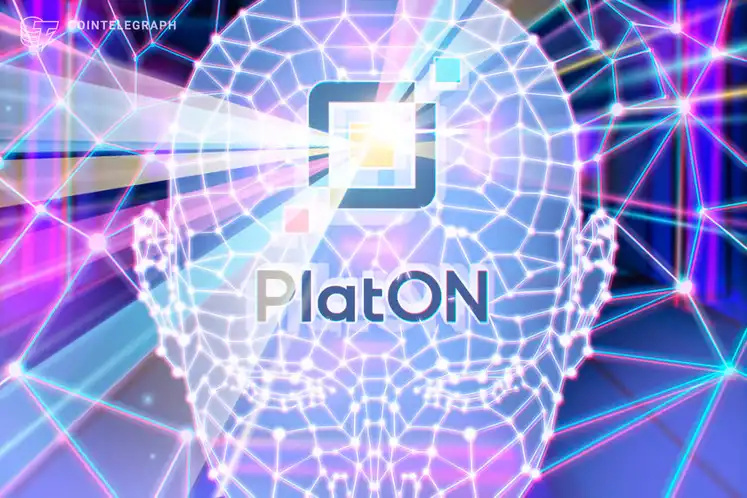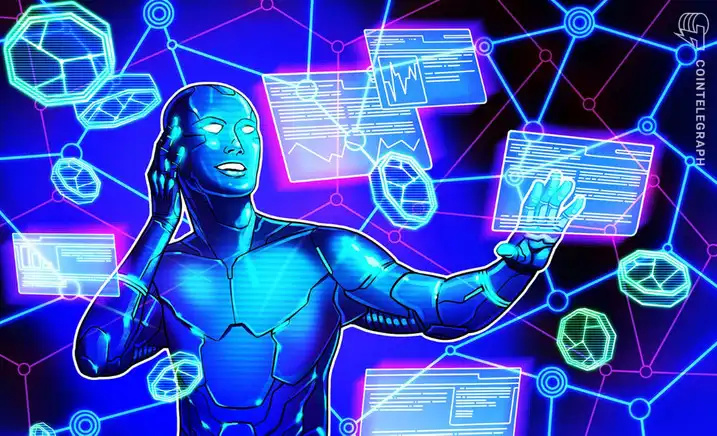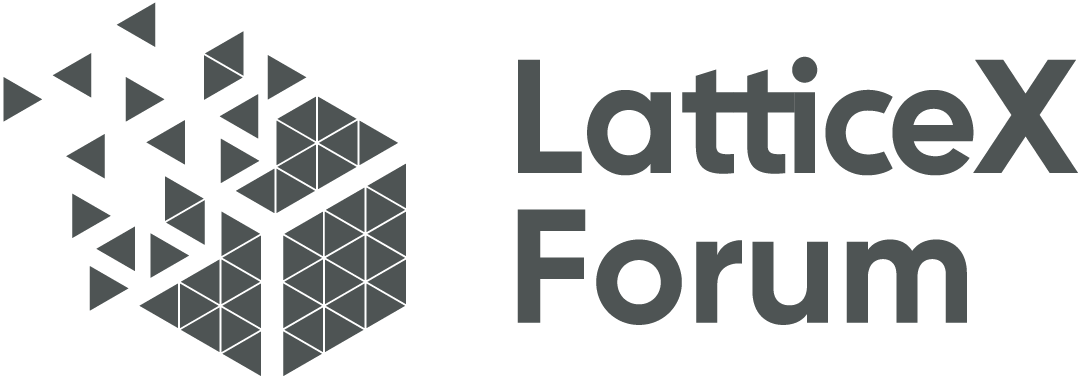原文
Bringing blockchain, AI and privacy-preserving computation together is the 2.0 version of this network’s white paper
There may only be one thing standing in the way of advanced artificial intelligence, a decentralized privacy-preserving computation network.

Artificial Intelligence (AI) is quickly proving how it can change the landscape of society today. With more data comes greater opportunity to turn data analysis into a method for strategic decision-making and unlock new user experiences.
Although the applications of AI are many from knowledge reasoning to game playing and even extending as far as machine learning, new vulnerabilities are becoming apparent with private and sensitive information. Many of the world’s technology giants in the United States and China have accumulated massive amounts of data through existing internet services in AI development. However, the more “intelligent” AI is, the more personal the information that needs to be acquired, managed and studied, raising the question of the ethics behind privacy protection.
As a result, many individuals are already skeptical when sharing personal and professional data due to the current concerns around the misuse of information. On the other side, organizations that leverage AI cannot access the large amounts of data and training models they need.
Fortunately, blockchain and privacy-preserving computation enable the privacy and security controls necessary for compliance and facilitating data sharing and exchange. In proper application, they can also make AI easier to understand, track and audit.
To bring this concept of advanced AI to life, PlatON is striving to build a decentralized artificial intelligence (AI) network and global brain that will effectively drive the democratization of AI for safe artificial general intelligence. The network was initiated by LatticeX Foundation and leverages a next-generation internet infrastructure protocol that significantly shortens proof size while accelerating proof generation and verification.
The team has since launched the latest version of their white paper (2.0), which for those familiar with the project, includes several updates to the sections regarding their privacy-preserving computation.
Bringing forth changes
Currently, existing public chains are not adequate for the needs of the privacy-preserving AI. Therefore, PlatON was required to implement a Later1 base protocol that is deeply adapted to privacy-preserving AI. The P2P base protocol is used for node discovery and connection through the RELOAD protocol.
Additionally, PlatON supports WASM and EVM virtual machines, each containing privacy-preserving algorithms that allow developers to protect a user’s data privacy within the contract. Algorithms also help to guarantee a standard for token privacy contracts through destruction, interactions and minting, which further guarantees a user’s anonymity.
The 2.0 version of the PlatON white paper also introduces the Metis privacy-preserving computations network, which combines algorithms, computing power and the data necessary for decentralized computing to ensure secure privacy-preserving computation. Metis supports two types of privacy-preserving protocols: secure multi-party computation and secure outsourcing computation.
Moirae, the decentralized AI platform, should also be noted for providing a one-stop AI development platform with all-inclusive modeling processes to assist in managing AI workflows. This platform also doubles as a marketplace for developers to view training datasets and interact with other models and paying users. A developer may also deploy a trained model to a single network node or multiple network nodes that make predictions with secure computing protocols.
MORE INSIGHTS ON PLATON HERE
An AI framework for developers
As it stands today, PlatON launched Alaya in October 2020, a testing solution and business sandbox for the future of financial infrastructure. The solution leverages cross-chain bridges between Alaya and several other chains.
Future pursuits from the team include a continued focus on advancing their privacy-preserving AI network throughout 2021 and plans to publish many of the associated protocols as stated in their official roadmap.
Learn more about PlatON
浅浅社区翻译
PlatON NetWork2.0白皮书——一个结合区块链、人工智能和隐私保护的计算网络。
去中心化的隐私保护计算网络尚未完成,阻碍了强人工智能的发展。
人工智能(AI)正在迅速证明它可以如何改变当今社会的面貌。随着更多的数据带来更大的机会,将数据分析变成战略决策的方法,并释放新的用户体验。
尽管人工智能的应用很多,从知识推理到游戏,甚至延伸到机器学习,但在私人和敏感信息方面,新的漏洞正变得明显。美国和中国的许多世界科技巨头在人工智能发展中通过现有的互联网服务积累了大量的数据。然而,人工智能越 “智能”,需要获取、管理和研究的个人信息就越多,这就提出了隐私保护背后的伦理问题。
因此,由于目前围绕信息滥用的担忧,许多人在分享个人和专业数据时已经持怀疑态度。另一方面,利用人工智能的组织无法获得他们需要的大量数据和训练模型。
幸运的是,区块链和保护隐私的计算能够实现合规性和促进数据共享和交换所需的隐私和安全控制。在适当的应用中,它们还可以使人工智能更容易理解、跟踪和审计。
为了将这一先进的人工智能概念变为现实,PlatON正在努力建立一个分散的人工智能(AI)网络和全球大脑,这将有效地推动人工智能的民主化,实现安全的人工通用智能。该网络由LatticeX基金会发起,利用下一代互联网基础设施协议,大大缩短了证明规模,同时加速了证明的生成和验证。
此后,该团队推出了最新版本的白皮书(2.0),对于那些熟悉该项目的人来说,其中包括对有关其隐私保护计算部分的若干更新。
带来的变化
目前,现有的公共链并不能满足保护隐私的人工智能的需求。因此,PlatON需要实现一个深度适应保护隐私的人工智能的Later1基础协议。P2P基础协议通过RELOAD协议用于节点发现和连接。
此外,PlatON支持WASM和EVM虚拟机,每个虚拟机都包含隐私保护算法,允许开发者在合约中保护用户的数据隐私。算法还有助于通过销毁、互动和铸币来保证代币隐私合约的标准,从而进一步保证用户的匿名性。
PlatON白皮书的2.0版本还介绍了Metis隐私保护计算网络,它结合了算法、计算能力和去中心化计算所需的数据,确保安全的隐私保护计算。Metis支持两种类型的隐私保护协议:安全多方计算和安全外包计算。
Moirae,这个去中心化的人工智能平台,还应该注意到它提供了一个一站式的人工智能开发平台,包括所有的建模过程,协助管理人工智能工作流程。这个平台也是一个市场,供开发者查看训练数据集并与其他模型和付费用户互动。开发者还可以将训练好的模型部署到单个网络节点或多个网络节点,通过安全计算协议进行预测。
更多关于platon的见解,请点击这里
最后,白皮书的2.0版本触及了服务节点Horae的能力。通过Horae,自组织群体智能被用来连接虚拟世界和现实世界,进一步连接人类、物联网设备和其他外部IT系统。虽然代理人是自主行动的,但他们的互动可以帮助追求更复杂的目标。
综合来看,PlatON白皮书的更新证明了该团队对建立下一代可互操作的计算网络的承诺,这可能是一个新范式的开始。
一个面向开发者的人工智能框架
按照目前的情况,PlatON在2020年10月推出了Alaya,这是一个针对未来金融基础设施的测试解决方案和商业沙盒。该解决方案利用了Alaya和其他几个链之间的跨链桥。
该团队未来的追求包括在整个2021年继续专注于推进他们的隐私保护人工智能网络,并计划发布许多相关的协议,正如他们的官方路线图中所述。
CT官方翻译
PlatON 2.0白皮书:汇集区块链、人工智能和隐私计算
PlatON正在构建一个去中心化的AI网络和全球大脑,并以此推动人工智能的民主化,从而实现安全的通用化人工智能。

人工智能(AI)正在迅速向我们证明它将怎样改变当前的社会格局。一旦拥有更多数据,人工智能就更有机会将数据分析作为一种战略决策方法,带来全新的用户体验。
人工智能应用广泛,包括知识推理、博奕,乃至机器学习。尽管如此,在个人敏感信息方面,新的AI漏洞也愈发明显。在中美两国,通过现有的互联网服务,许多国际科技巨头都在AI开发的过程中积累了大量数据。然而,人工智能越是“智能”,就越需要获取、管理和研究更加个人化的信息,触及隐私保护背后的伦理问题。
在这样的背景下,由于当下对信息滥用的担忧,许多人在分享个人和专业数据时已持怀疑态度。另一方面,正在开发利用人工智能的各个组织也无法获取其所需要的海量数据和训练模型。
值得幸庆的是,通过必要的隐私和安全措施,区块链和隐私计算能够实现合规性,促进数据共享与交换。若能妥善应用,区块链和隐私计算还可以帮助我们更好地理解、跟踪和审计人工智能。
为了将先进人工智能的概念付诸实践,PlatON正在构建一个去中心化的AI网络和全球大脑,并以此推动人工智能的民主化,从而实现安全的通用化人工智能。作为由LatticeX基金会发起的项目,PlatON采用了下一代互联网基础设施协议。该协议能够显著缩小证明,同时加快证明的生成和验证。
近期,PlatON团队发布了最新的2.0白皮书。对于熟悉PlatON的人而言,2.0白皮书包含了对隐私计算的多项更新。
引领变革
目前,现有的公链无法满足隐私保护AI的需要。因此,在根据隐私保护AI对其进行深度调整后,PlatON采取了一项Layer1基础协议。通过RELOAD协议,PlatON利用该P2P基础协议来发现和连接节点。
此外,PlatON支持WASM和EVM虚拟机。由于两者均含隐私算法,开发人员能够在合约当中保护用户的数据隐私。通过代币的销毁、交互和铸造,隐私算法还能帮助代币隐私合约确立标准,从而进一步确保用户的匿名性。
PlatON 2.0白皮书还引入了Metis隐私计算网络。通过结合去中心化计算所需的算法、算力和数据,该隐私计算网络能够确保安全的隐私计算。Metis支持两种类型的隐私协议——安全多方计算和隐私外包计算。
Moirae是一个去中心化的人工智能平台。值得注意的是,它同时也是一个一站式AI开发平台——Moirae提供全方位建模流程,从而协助管理AI工作流。此外,Moirae还是一个面向开发人员的人工智能市场。开发者可以利用Moirae查看培训数据集、与其他模型和付费用户进行交互。通过Moirae,开发人员还可以将训练完毕的AI模型部署到基于安全计算协议进行预测的单个或多个网络节点。
最后,2.0白皮书还描述了服务节点Horae的相关功能。Horae利用自治的群体智能实现虚拟与现实的互联,从而加强人类、物联网设备和其他外部IT系统之间的连接。尽管每个⾃主代理是独⽴运⾏,但它们之间的交互有助于实现更为复杂的目标。
综上所述,通过新版白皮书,我们能够看出PlatON团队继续构建下一代可交互操作的计算网络的承诺和决心,而这可能是新范式的开端。
面向开发人员的AI框架
就目前而言,PlatON已于2020年10月推出了一项针对未来金融基础设施的测试方案和业务沙盒——Alaya,成功实现了和多条区块链之间的跨链交互。
2021年, PlatON将按照计划发布发展路线图中的多项相关协议。另外, PlatON还将继续致力推进隐私AI网络建设,努力实现这一主要团队目标。
